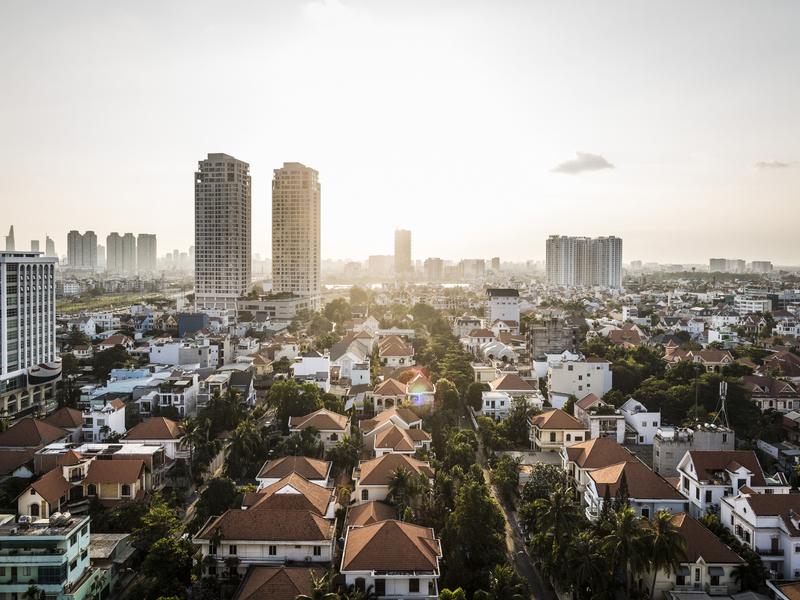

Vietnam has been in the news for some time because of changes surrounding its Value Added Tax (VAT). Many business owners and entrepreneurs are currently interested in understanding the VAT laws in Vietnam because they wish to find out how these new tax laws will affect them. If you belong to this category of people, keep reading to find more interesting details. This piece will teach you about the VAT rate in Vietnam.
What is VAT?
VAT is a tax levied on goods and services used for trading, production, or consumed directly in Vietnam. These goods also include goods and services purchased from non-residents. However, there will be certain exemptions to these taxes. You need to understand that the VAT rates in any jurisdiction are variable.
VAT rate of 0% will be applied to exported goods or services. This classification will include goods and services transferred overseas/non-tariff areas, goods consumed outside Vietnam/non-tariff areas, goods sold to duty-free shops, goods produced for export, international transportation services, and exported services.
Also, a VAT rate of 5% is charged on sectors in the economy that offer individuals essential goods and services. These goods and services include; raw foodstuff, clean water, medicine, medical equipment, teaching aid books, husbandry services, technical services, sports services/products, and social housing. Furthermore, a 10% rate is charged on goods that are not classified as ‘not subject to VAT or aren’t charged with the 0% or 5% rate.
A VAT rate of 10% applies to activities not specified as not-subject to VAT, exempt or subject to 0% or 5%.
Exempt Goods and Services
Some certain goods/services do not exactly qualify to be charged with VAT. These goods include agricultural products, imported or leased drilling rigs, aeroplanes and ships of a type which cannot be produced in Vietnam, goods and services provided by individuals having annual revenue of VND 100 million or below, financial services such as fund management, the transfer of land use rights, debt factoring, medical and elderly care services, foreign currency trading, public transport, teaching and training, the exportation of raw natural resources, etc.
When a supply cannot be readily classified based on the tax tariff, VAT must be calculated based on the highest rate applicable for the particular range of goods which the business supplies.
VAT Rate Reduction from 2022 to 2024
The VAT laws in Vietnam were adjusted in February 2022. Government authorities in Vietnam issued Decree No. 15/2022/NĐ-CP dated on January 28, 2022 and Decree No. 41/2022/NĐ-CP dated on 20 June 2022 to guide the implementation and reduction of Value Added Tax and Corporate Income Tax. The application period is from February 1, 2022 to December 31, 2022.
After that, on June 30, 2023, the Government of Vietnam promulgated Decree No. 44/2023/ND-CP on VAT reduction according to Resolution No. 101/2023/QH15. According to the Decree, the VAT reduction applied from July 01, 2023 to the end of December 31, 2023.
And on the morning of November 29, 2023, the National Assembly officially passed the Resolution of the 6th session, agreeing to extend the 2% VAT reduction period from January 1, 2024 to June 30, 2024.
This decree was to support the country’s recovery from the pandemic period.
According to this regulation, the VAT rate for groups of goods and services currently subject to 10% VAT will be reduced to 8%. This rate change would affect several services, including goods imported, goods used in manufacturing and processing, and goods sold.
However, when selling goods or providing services with different tax rates, the VAT invoice must clearly state the tax rate of each goods and services or issue a separate invoice to indicate any goods and services that qualify for this reduction. The regulation also stipulate that you’ll also be required to declare any goods that are eligible for this deduction under Form 01.
You must note that certain goods and services do not qualify for the VAT reduction introduced earlier this year. They include financial services, banking, securities, metals, telecom services, Real estate business, chemical and mining products, goods and services subject to Special Consumption Tax, and IT goods and services.
How To Handle VAT Declaration and Payment?
All organizations and individuals producing or trading VATable goods and services in Vietnam must register for VAT. In certain cases, branches of an enterprise must register separately and declare VAT on their own activities.
The deadline for submit VAT declaration on a monthly basis by the 20th day of the subsequent month, or on a quarterly basis by the last day of the first month of the subsequent quarter (for companies with prior year annual revenue of VND 50 billion or less).
Asides from the product categories discussed above, you need to note that there are goods or services where VAT declaration and payment are not required. For these supplies, no output VAT has to be charged but input VAT paid on related purchases may be credited. These supplies include;
- Transmission of emission rights and financial revenue services
- Transmission of investments
- Services offered by a foreign organization without a PE in Vietnam
- Sales of raw agricultural products that haven’t been processed or have only experienced preliminary processing activities
- Capital contributions
- Provision of compensation and indemnities by insurance companies from third parties
- Collections on behalf of others that are not applied or related to the provision of goods/services. For instance, company X purchases goods/services from company Y but pays an intermediary company Z, and company Z remits the payment to Y. The transfer between Y and Z is not subject to VAT.
- Commissions are earned by agents selling at a price specified by their principals, agents for international transportation, and insurance
- Commissions earned from the sales of goods exempt from VAT
- Goods are exported and reimported to Vietnam. This transfer is usually due to sales returns by overseas customers.
On 28 May 2022, the Government released Decree 34 regarding the extension of deadlines for payments of taxes and land rental fees applicable for the 2022 tax year, this Decree applies for small and micro businesses are defined by regulations of the Law on Supporting Small and Medium Enterprises, Businesses engaging in the production of supporting industrial products are prioritized for development and other key mechanical products, the businesses relating to agriculture, forestry, and fisheries, construction, transportation and warehousing, Labour and employment services, travel agents, tour operators, and support services related to tour promotion and organization.
The deadline for VAT payments for March, April, May 2022 (for companies declaring VAT on monthly basis) and Quarter 1 of 2022 (for companies declaring VAT on quarterly basis) will be extended by 6 months; VAT payments for June 2022 and Quarter 2 of 2022 will be extended by 5 months; VAT payments for July and August 2022 will be extended by 4 months and 3 months, respectively.
How Can We Help?
When computing the finances for your company, the Value Added Tax for the organization is an essential aspect. The VAT for a company is an effective way for Vietnam to earn money from the activities of businesses within its borders. As a result, Vietnamese authorities take payment and filing of VAT seriously. When dealing with exempted goods/services, companies are expected to declare which products fall within this category.
The process of handling VAT alongside other business activities can be relatively difficult. Organizations often fail to do it correctly and incur penalties and charges. This can be quite detrimental to the company’s activities. That’s where we come in.
Premia TNC is a top-rated business consultancy service. We partner with businesses and entrepreneurs to make their operations seamless. As part of our services to help companies to operate better, we can assist with VAT payments and other activities related to this levy. Our experts will reveal everything you need to know about this tax, including the steps involved in payment and VAT declaration. We ensure that our consultancy teams are made up solely of experts. Therefore, you can rest assured that every service you get from us is top-cadre.
FAQs
Is there a fixed VAT rate for eligible goods and services?
No, there's no fixed VAT rate for eligible goods and services in Vietnam. In this region, goods and services may be taxed at 0%, 5%, or 10%. However, recent regulations have reduced the 10% rate to 8%.
Does VAT reduction affect all goods?
The Vietnamese government introduced a VAT reduction starting from February 1, 2022. This reduction will affect only goods in the 10% tax rate. However, companies will need to declare if their products or services qualify for this rate reduction. The reduction will last from February 1, 2022 - December 31, 2022 and July 01, 2023 to June 30, 2024.



premiatnc
View All BlogsRelated Posts
April 16, 2024
The Ins and Outs of a Limited Liability Company in Vietnam
Establishing a business in Vietnam can…
March 22, 2024
Unlocking Avenues: Discovering the Best Business Opportunities in Vietnam
Nestled in Southeast Asia, Vietnam is…
March 6, 2024
E-commerce in Vietnam: Growing Cross Border Ecommerce Opportunities with China-Vietnam
Vietnam's economy is swiftly…




